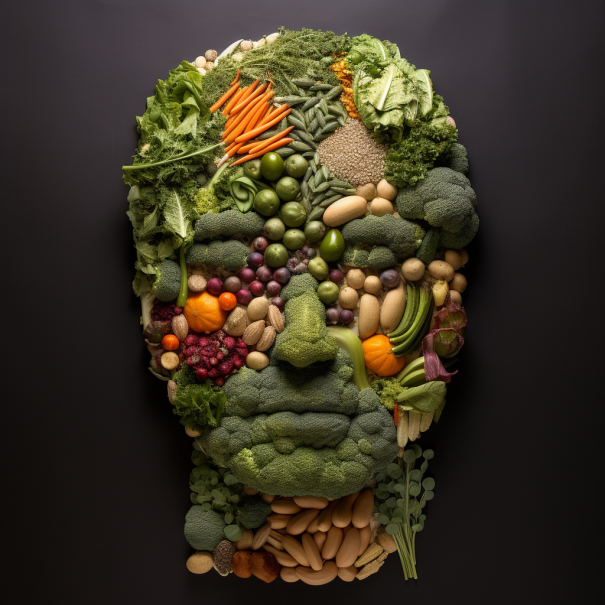Plant-Based Protein Sources Explained: How to Build Muscle and Stay Healthy on a Vegan Diet
Plant-based meats have gained significant popularity in recent years as more people embrace plant-based diets and sustainable living. These innovative products are designed to mimic the taste, texture, and appearance of traditional meat, making them a compelling option for those looking to reduce their consumption of animal products.
One of the key considerations when adopting a plant-based diet is ensuring an adequate intake of protein. Protein is an essential macronutrient that plays a crucial role in various bodily functions, including muscle growth and repair, hormone production, and immune system function.
In this article, we will explore the concept of complete proteins and their importance in a plant-based diet. We will also delve into the various plant-based protein sources available, providing you with a comprehensive guide to incorporating these protein-rich foods into your meals.
Understanding Complete Proteins
In a balanced diet, complete proteins play a crucial role in providing the necessary building blocks for our bodies. But what exactly are complete proteins? Let’s dive in and explore their significance.
Defining Complete Proteins
Complete proteins are protein sources that contain all essential amino acids required by the human body. These amino acids are considered essential because our bodies cannot produce them on their own, so we must obtain them through our diet.
Unlike incomplete proteins, which lack one or more essential amino acids, complete proteins offer a complete package of all the amino acids our bodies need to function optimally.
The Role of Amino Acids in the Body
Amino acids are the building blocks of proteins and are essential for various bodily functions. They are involved in the synthesis of enzymes, hormones, and neurotransmitters, as well as the repair and growth of tissues.
These tiny molecules also play a vital role in supporting our immune system, transporting nutrients, and maintaining proper fluid balance. Without adequate amino acids, our bodies cannot perform these essential functions efficiently.
The Importance of Complete Proteins for Overall Health
Consuming complete proteins is crucial for maintaining overall health and well-being. By incorporating complete protein sources into our diets, we ensure that our bodies receive all the essential amino acids they need to function optimally.
Complete proteins are particularly important for individuals following a plant-based diet, as they help address the potential challenge of obtaining all essential amino acids solely from plant sources.
By including a variety of complete protein sources in our meals, we can support muscle growth and repair, maintain healthy skin and hair, and promote proper immune function. Additionally, complete proteins can help regulate blood sugar levels and contribute to a feeling of satiety, aiding in weight management.
Plant-Based Protein Sources
When it comes to following a plant-based diet, it’s important to ensure you’re getting an adequate amount of protein. Luckily, there are plenty of plant-based protein sources that can help you meet your nutritional needs. Here are some of the top options:
Legumes
Legumes are a fantastic source of plant-based protein. They include lentils, chickpeas, and black beans, among others. Legumes are not only rich in protein but also high in fiber, vitamins, and minerals. They can be easily incorporated into various dishes, such as soups, stews, salads, and even plant-based burgers.
Whole Grains
Whole grains like quinoa, brown rice, and oats are not only delicious but also packed with protein. Quinoa, in particular, is considered a complete protein as it contains all nine essential amino acids. Whole grains are versatile and can be used as a base for salads, side dishes, or even as a substitute for rice or pasta.
Nuts and Seeds
Nuts and seeds are not only a great source of healthy fats but also provide a good amount of protein. Almonds, chia seeds, and hemp seeds are particularly high in protein. They can be enjoyed as a snack, added to smoothies, or used as toppings for salads and desserts.
Soy-Based Products
Soy-based products like tofu, tempeh, and edamame are excellent sources of plant-based protein. They are also rich in other nutrients like iron, calcium, and omega-3 fatty acids. Tofu and tempeh can be used as meat substitutes in various recipes, while edamame makes a great snack or addition to stir-fries.
By incorporating these plant-based protein sources into your diet, you can ensure that you’re meeting your protein needs while enjoying a variety of delicious and nutritious foods.
Vegan Protein Guide
When following a plant-based diet, it’s essential to ensure you’re getting enough protein to support your body’s needs. Luckily, there are plenty of vegan protein sources available that can help you meet your daily requirements. Here is a comprehensive guide to vegan protein sources:
Breakdown of Protein Content
Plant-based foods offer a wide range of protein content. Here are some examples:
- Lentils: 18 grams of protein per cooked cup
- Chickpeas: 15 grams of protein per cooked cup
- Quinoa: 8 grams of protein per cooked cup
- Almonds: 6 grams of protein per ounce
- Tofu: 10 grams of protein per 3.5 ounces
Recommended Serving Sizes and Daily Protein Intake
It’s important to consume an adequate amount of protein each day. For vegans, the recommended daily protein intake is around 0.8 grams of protein per kilogram of body weight. Here are some serving sizes to help you meet your protein needs:
- Lentils: 1 cup cooked (18 grams of protein)
- Chickpeas: 1 cup cooked (15 grams of protein)
- Quinoa: 1 cup cooked (8 grams of protein)
- Almonds: 1 ounce (6 grams of protein)
- Tofu: 3.5 ounces (10 grams of protein)
Importance of Combining Protein Sources
While individual plant-based foods may not contain all essential amino acids, you can easily achieve amino acid balance by combining different protein sources throughout the day. For example, combining legumes with whole grains or nuts and seeds can provide a complete amino acid profile. This ensures that your body receives all the necessary building blocks for optimal health.
Protein-Rich Plant Foods
When it comes to following a plant-based diet, there is a wide variety of protein-rich foods that can help meet your nutritional needs. These plant-based foods not only provide essential amino acids but also offer a range of other health benefits. Here are some examples of protein-rich plant foods:
Spinach
Spinach is not only a nutrient powerhouse but also a great source of protein. With approximately 2.9 grams of protein per 100 grams, spinach is an excellent addition to any plant-based meal. Whether you enjoy it in salads, smoothies, or sautéed as a side dish, spinach adds a burst of flavor and nutrition to your plate.
Broccoli
Broccoli is not only known for its high fiber content but also for its protein content. With around 2.8 grams of protein per 100 grams, broccoli is a versatile vegetable that can be enjoyed in stir-fries, roasted, or steamed. Its crunchy texture and mild flavor make it a popular choice among plant-based eaters.
Brussels Sprouts
Brussels sprouts are often overlooked, but they are a fantastic source of protein. With approximately 3.4 grams of protein per 100 grams, Brussels sprouts offer a unique taste and texture. Roasting or sautéing them brings out their natural sweetness and enhances their flavor profile.
Kale
Kale has gained popularity in recent years due to its numerous health benefits, including its protein content. With around 2.9 grams of protein per 100 grams, kale is a nutrient-dense leafy green that can be enjoyed in salads, smoothies, or even baked as crispy kale chips. Its robust flavor and hearty texture make it a favorite among plant-based enthusiasts.
These protein-rich plant foods not only provide a substantial amount of protein but also offer a wide range of vitamins, minerals, and antioxidants. Incorporating them into your plant-based cooking can help ensure a well-rounded and nutritious diet.
Amino Acids and Plant-Based Diets
Amino acids play a crucial role in the body, serving as the building blocks of proteins and contributing to various physiological processes. When it comes to plant-based diets, understanding the role of amino acids is essential for ensuring a balanced and nutritious eating plan.
Obtaining all essential amino acids is important for overall health, and plant-based diets can provide these amino acids through a variety of protein sources. While it is true that some plant-based foods may lack certain amino acids individually, combining different plant-based protein sources can easily overcome this limitation.
It is a common misconception that plant-based diets are deficient in certain amino acids, particularly the essential ones that the body cannot produce on its own. However, by incorporating a diverse range of plant-based protein sources into your diet, you can easily obtain all the essential amino acids your body needs.
Legumes, such as lentils, chickpeas, and black beans, are excellent sources of protein and contain a good balance of essential amino acids. Whole grains like quinoa, brown rice, and oats also contribute to the amino acid profile of a plant-based diet. Nuts and seeds, such as almonds, chia seeds, and hemp seeds, are rich in protein and provide a variety of amino acids as well.
Additionally, soy-based products like tofu, tempeh, and edamame are complete protein sources that contain all essential amino acids. By incorporating these plant-based protein sources into your meals, you can ensure that you are obtaining a wide range of amino acids necessary for optimal health.
It’s important to note that consuming a variety of plant-based protein sources throughout the day is key to obtaining all essential amino acids. By diversifying your diet and including different plant-based protein sources in each meal, you can easily meet your amino acid needs and maintain a well-rounded plant-based diet.
Conclusion
In conclusion, this article has provided valuable insights into the world of plant-based meats and their role in a sustainable and protein-rich lifestyle. Here are the key points discussed:
- Complete proteins are essential for a balanced diet as they contain all the essential amino acids necessary for optimal health.
- Plant-based diets offer an abundance of complete protein sources, debunking the myth that animal products are the only way to obtain all essential amino acids.
- Legumes, whole grains, nuts, seeds, and soy-based products are excellent plant-based protein sources that can be easily incorporated into daily meals.
- Vegans can meet their protein needs by consuming a variety of plant-based foods and ensuring they reach the recommended daily protein intake.
- Protein-rich plant foods like spinach, broccoli, Brussels sprouts, and kale provide not only protein but also a range of other essential nutrients.
- Amino acids play a crucial role in the body, and plant-based diets can provide all the necessary amino acids when a variety of protein sources are combined.
With the increasing availability and variety of plant-based meats, it is now easier than ever to explore and incorporate these products into your diet. By doing so, you can enjoy a sustainable and protein-rich lifestyle while contributing to the well-being of the planet.
Related FAQ
What are complete proteins, and why are they important in a plant-based diet?
Complete proteins contain all essential amino acids required by the human body. In a plant-based diet, they ensure that all the necessary amino acids are provided, supporting functions like muscle growth, hormone production, and immune system function. Sources like quinoa and soy-based products offer complete proteins in plant-based diets.
Can I get enough protein from a vegan diet?
Yes, a vegan diet can provide enough protein if planned properly. Including a variety of plant-based protein sources like legumes, whole grains, nuts, seeds, and soy-based products ensures an adequate intake of essential amino acids, meeting daily protein requirements.
What are some protein-rich plant foods to include in my diet?
Plant foods rich in protein include legumes like lentils and chickpeas, whole grains like quinoa and brown rice, nuts and seeds like almonds and chia seeds, and vegetables like spinach, broccoli, Brussels sprouts, and kale. These can be easily incorporated into daily meals for a nutritious boost.
Is it necessary to combine different plant-based proteins in my meals?
Combining different plant-based protein sources in meals can help ensure a complete amino acid profile. While individual plant-based foods may lack certain amino acids, combining sources like legumes with whole grains or nuts and seeds provides all essential amino acids for optimal health.
How does a plant-based diet contribute to sustainable living?
A plant-based diet aligns with sustainable living by reducing the demand for animal products, which often require more resources like water and land. It promotes ethical consumption, minimizes greenhouse gas emissions, and supports ecological balance. Incorporating plant-based proteins is a step towards a more sustainable and environmentally friendly lifestyle.
Key Take Away
- Complete Proteins in Plant-Based Diets: Understanding and consuming complete proteins, which contain all essential amino acids, is vital in a plant-based diet. Foods like quinoa and soy-based products offer complete proteins that support various bodily functions.
- Variety of Plant-Based Protein Sources: Plant-based diets can provide ample protein through diverse sources like legumes, whole grains, nuts, seeds, and vegetables. Incorporating these foods ensures adequate intake of essential nutrients.
- Combination of Protein Sources for Amino Acid Balance: By combining different plant-based protein sources throughout the day, individuals can achieve a complete amino acid profile. This approach ensures that the body receives all the necessary building blocks for optimal health.
- Protein-Rich Plant Foods and Health Benefits: Including protein-rich plant foods such as spinach, broccoli, Brussels sprouts, and kale not only provides protein but also offers a wide range of vitamins, minerals, and antioxidants for a well-rounded and nutritious diet.
- Sustainable Living through Plant-Based Eating: Embracing a plant-based diet with an array of plant-based meats and proteins contributes to sustainable living. It supports ethical consumption, reduces environmental impact, and aligns with a more eco-friendly lifestyle.
Glossary
- Complete Proteins: Proteins that contain all the essential amino acids required by the human body. They are vital for functions such as muscle growth, repair, and immune system function.
- Essential Amino Acids: Amino acids that are considered essential as they cannot be produced by the human body and must be obtained through the diet. They are the building blocks of proteins and vital for various physiological functions.
- Plant-Based Diet: A dietary lifestyle that emphasizes foods derived from plants and eliminates or minimizes animal products. It often includes vegetables, grains, legumes, nuts, and seeds.
- Legumes: A category of plant-based foods that include lentils, chickpeas, and beans. Rich in protein, fiber, vitamins, and minerals, they are a staple in plant-based diets.
- Whole Grains: Grains that include all three parts of the kernel: the bran, germ, and endosperm. Examples include quinoa, brown rice, and oats. They are sources of protein, fiber, vitamins, and other nutrients.
- Soy-Based Products: Foods derived from soybeans, such as tofu, tempeh, and edamame. These are complete protein sources rich in various nutrients like iron, calcium, and omega-3 fatty acids.
- Amino Acids: The building blocks of proteins involved in the synthesis of enzymes, hormones, and neurotransmitters, as well as tissue repair and growth.
- Protein-Rich Plant Foods: Plant foods that are particularly high in protein content, such as spinach, broccoli, Brussels sprouts, and kale. They provide not only protein but other essential nutrients as well.
- Recommended Daily Protein Intake: The suggested amount of protein to be consumed daily for optimal health. For vegans, it’s about 0.8 grams of protein per kilogram of body weight.
- Sustainable Living: A lifestyle that seeks to minimize one’s negative impact on the environment, focusing on reducing resource consumption and waste. Plant-based eating is often aligned with this philosophy, contributing to the well-being of the planet.
Additional Resources
Books
- The Plant-Based Athlete: Complete Guide to Plant-Based Nutrition for Health, Performance, and Recovery by Matt Frazier (2016)
- The Vegan Protein Guide: A Comprehensive Resource for Plant-Based Protein by Julieanna Hever (2017)
- Protein for Life: The Definitive Guide to Plant-Based Nutrition by Brenda Davis and Vesanto Melina (2010)
- The Complete Idiot’s Guide to Plant-Based Nutrition by Virginia Messina and JL Fields (2017)
- Vegan for Life: Everything You Need to Know to Stay Healthy on a Plant-Based Diet by John Robbins (2014)
Studies


